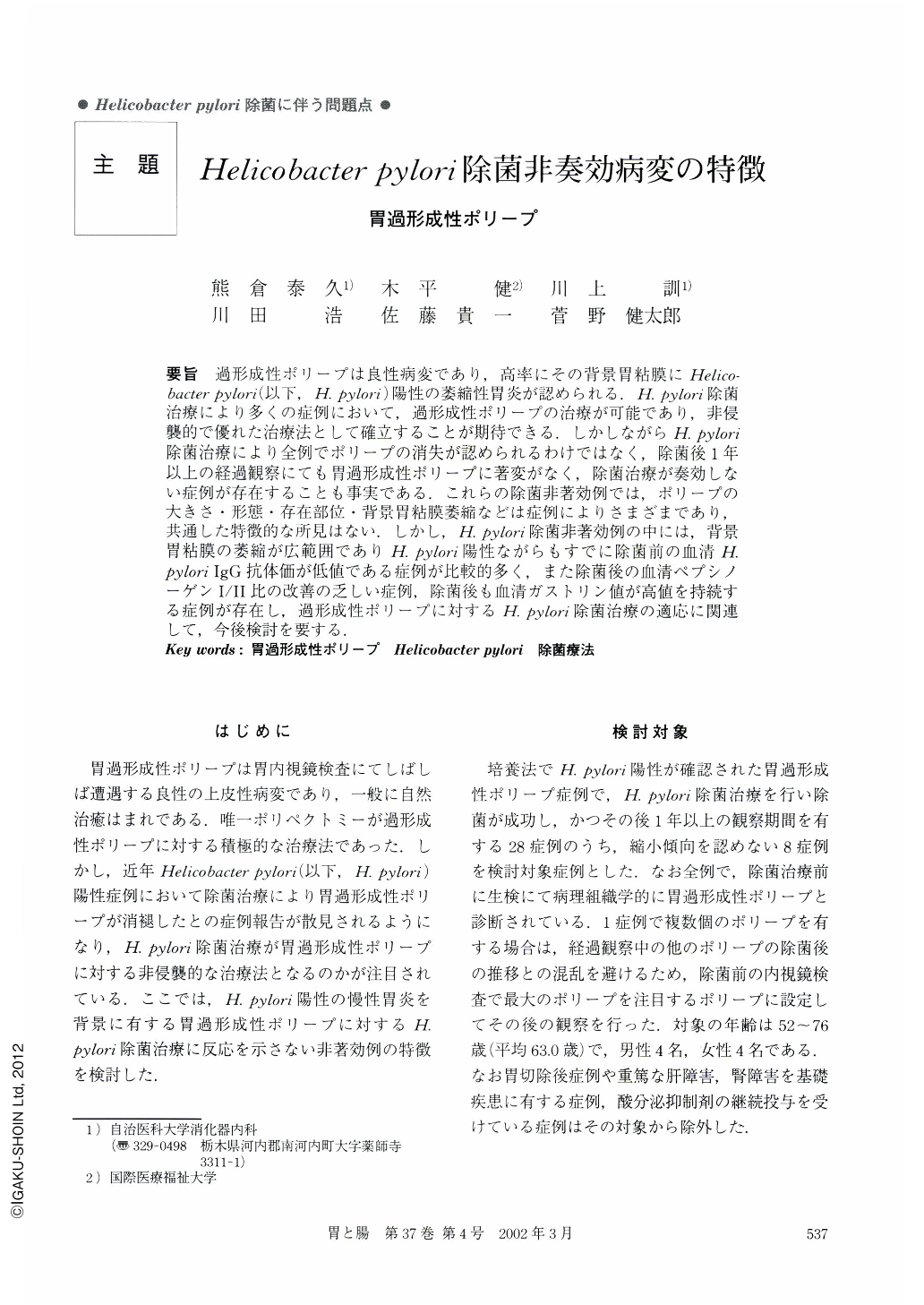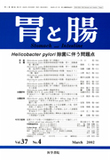Japanese
English
- 有料閲覧
- Abstract 文献概要
- 1ページ目 Look Inside
要旨 過形成性ポリープは良性病変であり,高率にその背景胃粘膜にHelicobacter pylori(以下,H. pylori)陽性の萎縮性胃炎が認められる.H. pylori除菌治療により多くの症例において,過形成性ポリープの治療が可能であり,非侵襲的で優れた治療法として確立することが期待できる.しかしながらH. pylori除菌治療により全例でポリープの消失が認められるわけではなく,除菌後1年以上の経過観察にても胃過形成性ポリープに著変がなく,除菌治療が奏効しない症例が存在することも事実である.これらの除菌非著効例では,ポリープの大きさ・形態・存在部位・背景胃粘膜萎縮などは症例によりさまざまであり,共通した特徴的な所見はない.しかし,H. pylori除菌非著効例の中には,背景胃粘膜の萎縮が広範囲でありH. pylori陽性ながらもすでに除菌前の血清H. pylori IgG抗体価が低値である症例が比較的多く,また除菌後の血清ペプシノーゲンⅠ/Ⅱ比の改善の乏しい症例,除菌後も血清ガストリン値が高値を持続する症例が存在し,過形成性ポリープに対するH. pylori除菌治療の適応に関連して,今後検討を要する.
Hyperplastic polyp is the most common type of benign polypoid lesions of the stomach. It has been shown that this type of polyp arises from gastric mucosa characterized by chronic inflammation and atrophy, both of which factors are strongly associated with Helicobacter pylori (H. pylori) infection. Gastric hyperplastic polyps are reduced and can be cured by eradication of H. pylori in most cases. Thus, the eradication of H. pylori is considered to be an excellent non-invasive therapy for gastric hyperplastic polyps. However, this therapy does not result in the disappearance of polyps in all cases. In fact, polyps in some patients that we studied showed no significant change even after more than one year of follow-up subsequent to H. pylori eradication.
In those whose polyps did not respond to the eradication of H. pylori, no common characteristics were observed in size, shape, localization, extension of atrophy in the background gastric mucosa, and other aspects of the polyps. Nevertheless, the following features were frequently observed in these patients: the presence of more extensive atrophy in the background gastric mucosa, low serum anti-H. pylori IgG titer observed before the eradication in spite of H. pylori positive finding, relatively poor improvement in serum pepcinogen Ⅰ/Ⅱ ratio after the eradication, and continuous elevation in serum gastrin level after the eradication.
In relation to the indication of eradication therapy for H. pylori in patients with gastric hyperplastic polyps, further studies are required to evaluate responders and non-responders to the eradication of H. pylori.

Copyright © 2002, Igaku-Shoin Ltd. All rights reserved.


